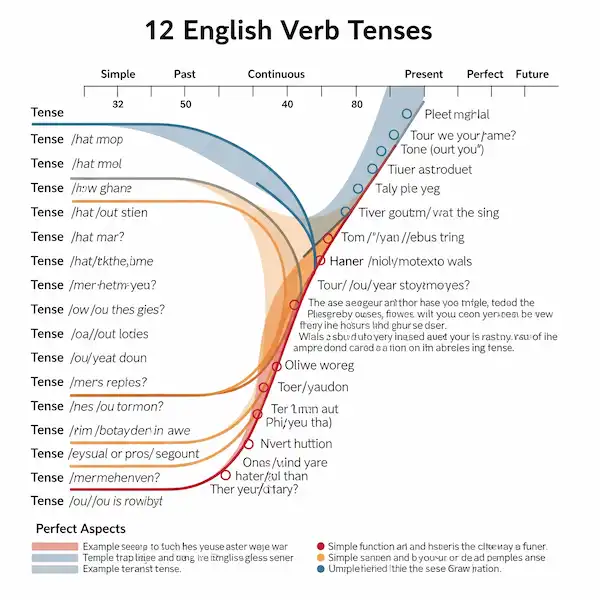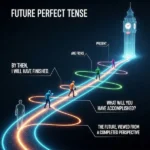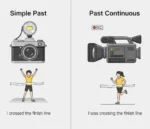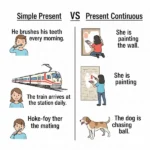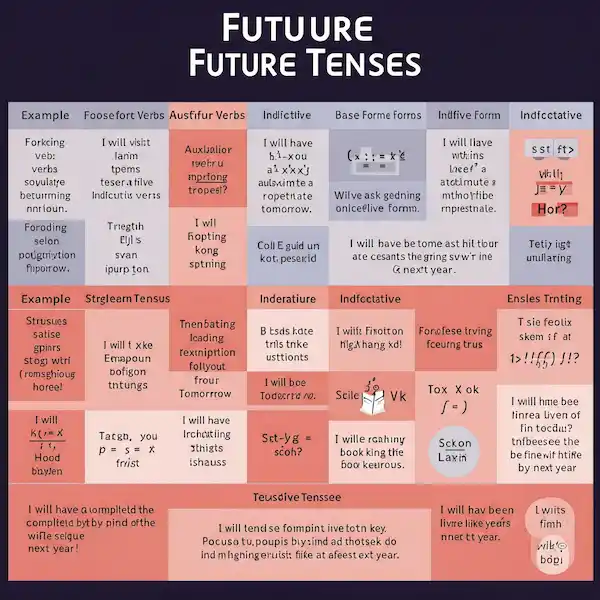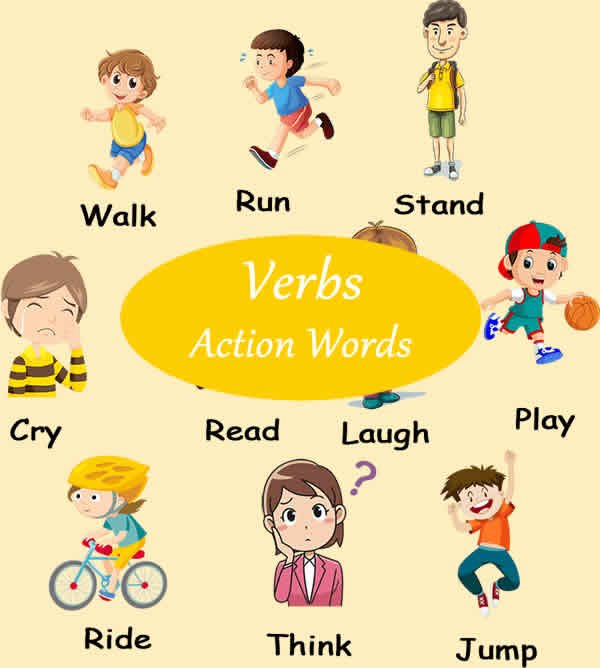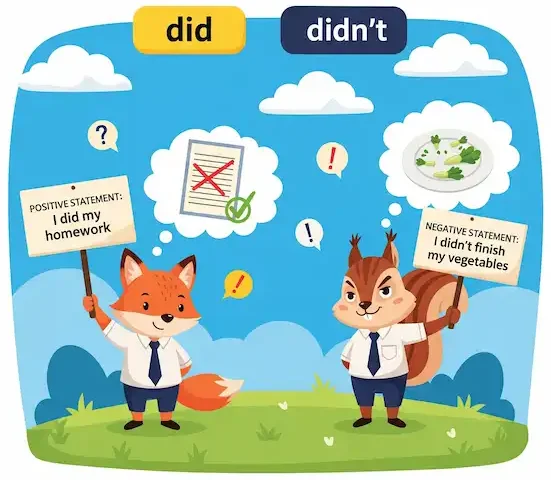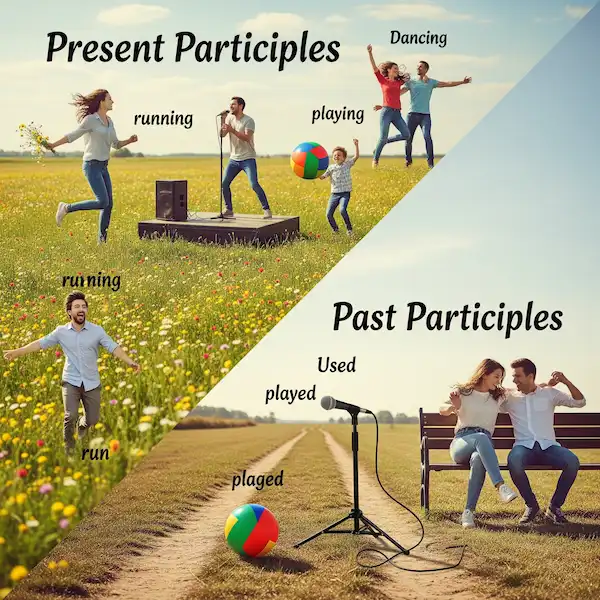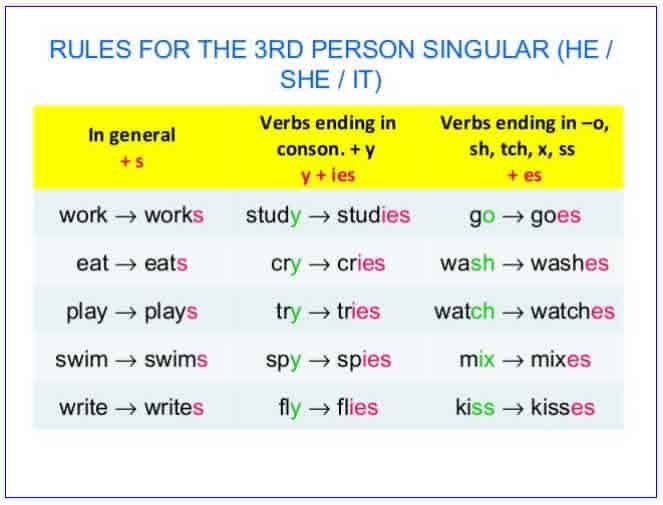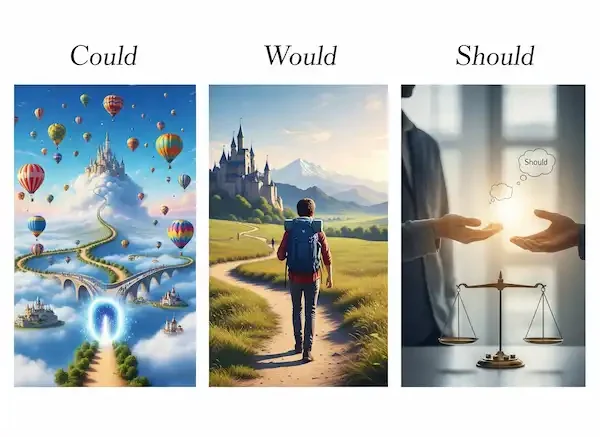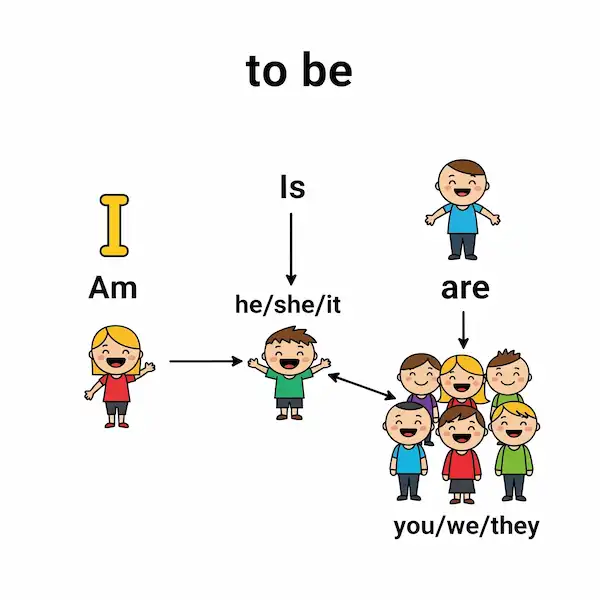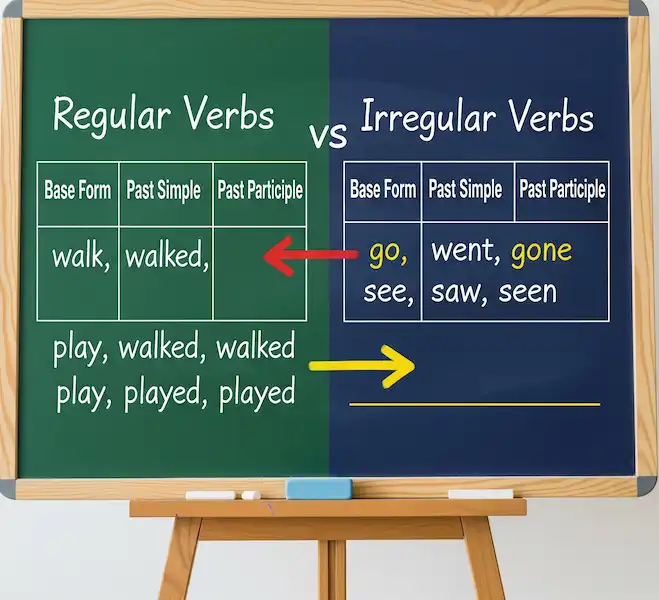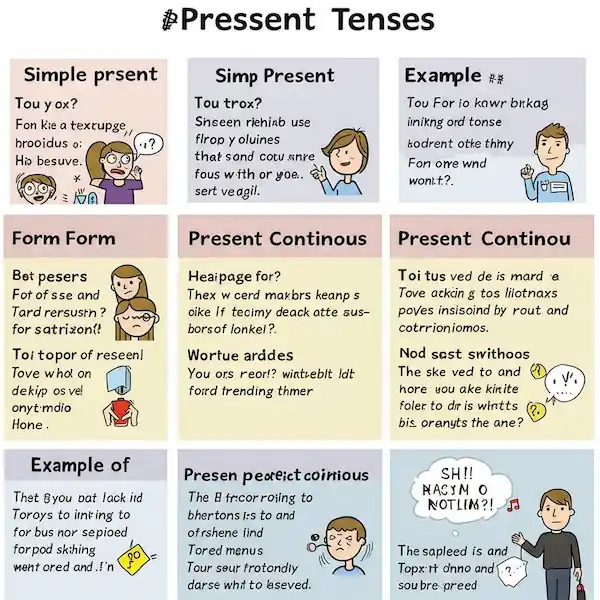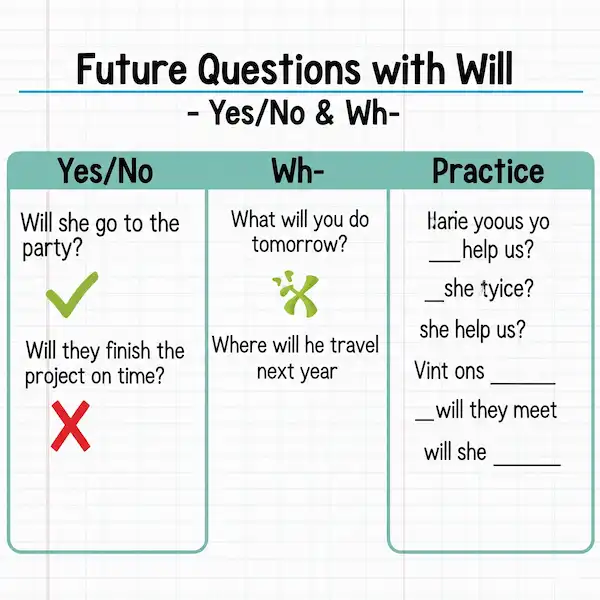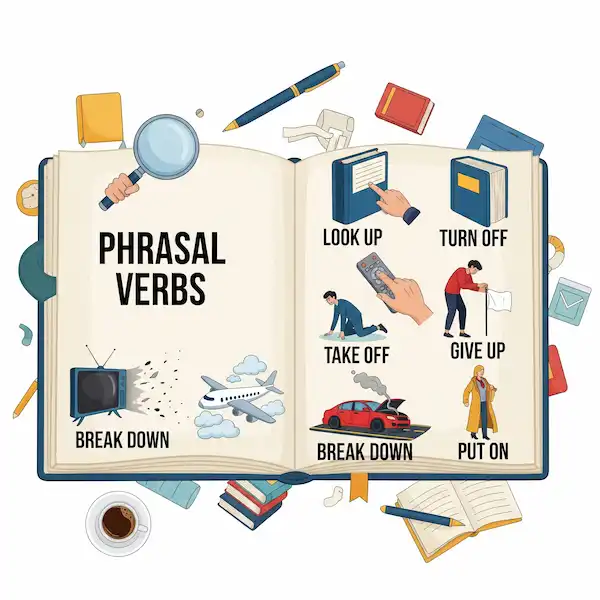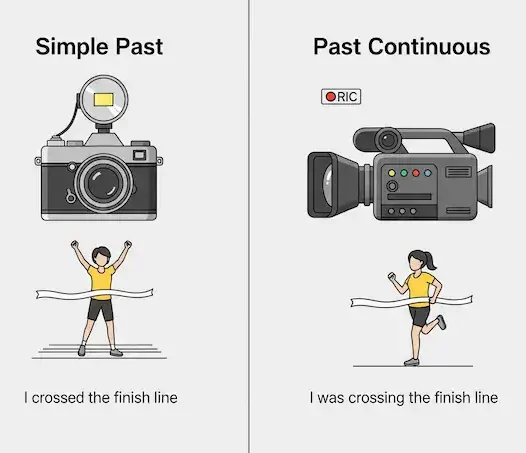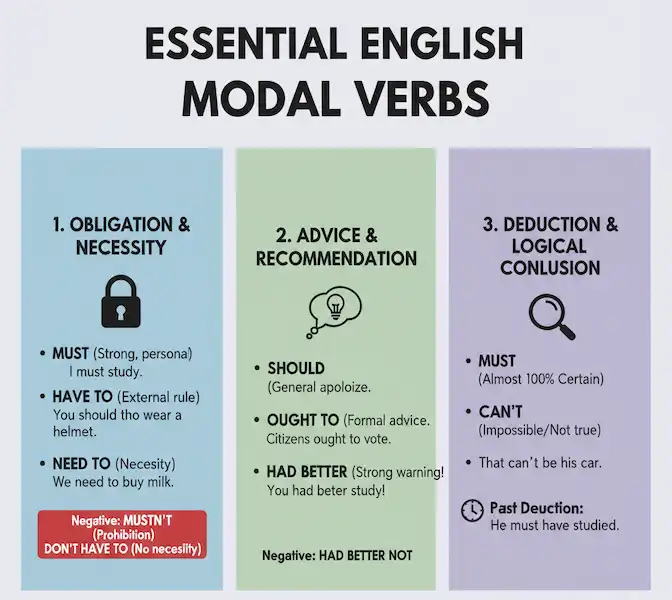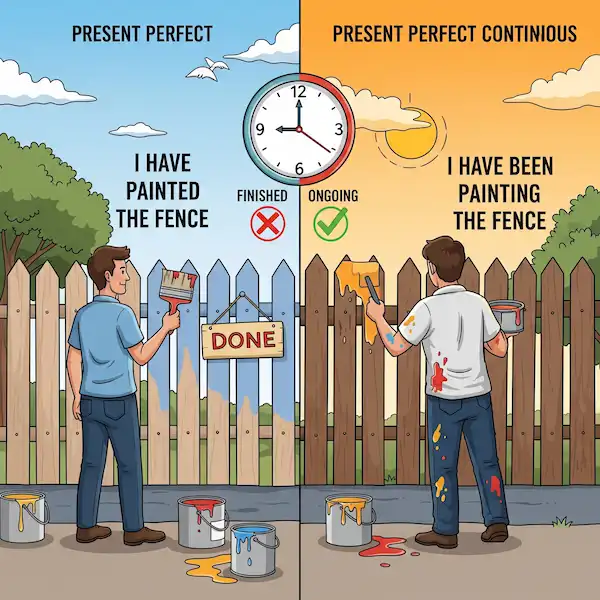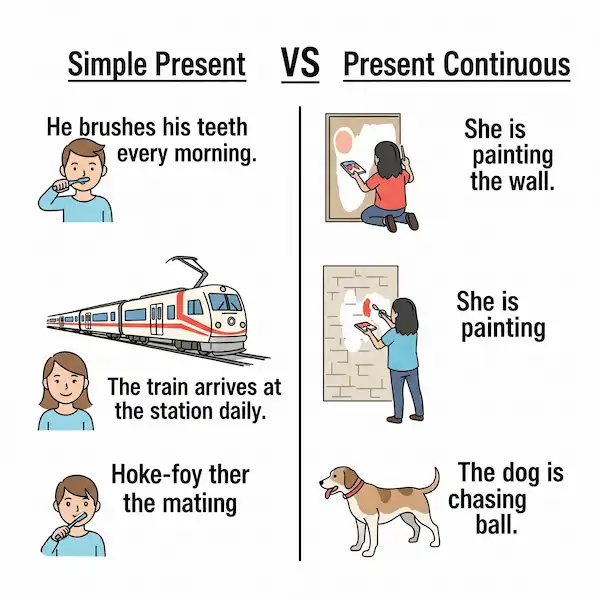The 12 English Verb Tenses: Your Ultimate Guide (with Examples!)
Hello, English learners! Have you ever felt tangled in the web of English verb tenses? You’re not alone! Mastering tenses is a key step in becoming a confident English speaker and writer. This guide is designed to clarify the 12 core English verb tenses, providing clear explanations, tons of examples, and helpful charts to make your learning journey smoother.
We’ll break down each tense, explain its uses, and show you how to form it. By the end, you’ll have a much clearer understanding of how to express actions and states in time. Let’s dive in!
Why Are English Verb Tenses Important?
Think of verb tenses as the timekeepers of your sentences. They tell us when an action happened, is happening, or will happen. Using the correct tense helps you communicate precisely and avoid misunderstandings.
For example:
- “I eat breakfast.” (Happens regularly)
- “I ate breakfast.” (Happened in the past)
- “I will eat breakfast.” (Will happen in the future)
See the difference? Small changes in the verb can completely change the meaning!
The Four Families of English Verb Tenses
English verb tenses are organized into four main families, based on their aspect:
- Simple Tenses: For general facts, habits, and completed actions.
- Continuous (Progressive) Tenses: For actions in progress.
- Perfect Tenses: For actions completed before another point in time.
- Perfect Continuous Tenses: For actions that started in the past and are still ongoing, or recently finished with a visible result.
Within each family, there’s a past, present, and future form, giving us a total of 12 tenses.
Let’s explore them one by one!
Family 1: Simple Tenses
These tenses are the foundation. They describe facts, habits, and single, completed actions.
1. Present Simple
- Use: To describe habits, routines, general truths, facts, and scheduled events.
- Formation: Base form of the verb (add -s/-es for he/she/it).
| Subject | Verb (Example: ‘walk’) |
| I/You/We/They | walk |
| He/She/It | walks |
Examples:
- I drink coffee every morning. (Habit)
- The sun rises in the east. (General truth)
- She works as a teacher. (Fact)
- The train departs at 7 PM. (Scheduled event)
2. Past Simple
- Use: To describe completed actions or states at a specific time in the past.
- Formation: Base form of the verb + -ed (for regular verbs); irregular verbs have unique forms.
| Subject | Verb (Example: ‘walk’ – regular) | Verb (Example: ‘go’ – irregular) |
| All | walked | went |
Examples:
- We visited Paris last summer. (Completed action)
- She ate pizza for dinner. (Completed action)
- He was happy with the results. (State)
- They finished their homework an hour ago. (Completed action at a specific time)
3. Future Simple
- Use: To describe actions that will happen in the future, predictions, promises, or spontaneous decisions.
- Formation: will + base form of the verb.
| Subject | Verb (Example: ‘walk’) |
| All | will walk |
Examples:
- I will call you later. (Promise)
- It will rain tomorrow. (Prediction)
- She will start a new job next month. (Future action)
- “Oh, the phone is ringing! I will get it.” (Spontaneous decision)
Family 2: Continuous (Progressive) Tenses
These tenses emphasize that an action is in progress at a particular time.
4. Present Continuous
- Use: To describe actions happening right now, temporary actions, or definite future plans.
- Formation: am/is/are + verb + -ing.
| Subject | Verb (Example: ‘walk’) |
| I | am walking |
| You/We/They | are walking |
| He/She/It | is walking |
Examples:
- I am reading a book right now. (Action happening now)
- They are studying for their exams this week. (Temporary action)
- We are meeting friends for dinner tonight. (Definite future plan)
- The baby is sleeping peacefully. (Action happening now)
5. Past Continuous
- Use: To describe an action that was in progress at a specific time in the past, or an action interrupted by another.
- Formation: was/were + verb + -ing.
| Subject | Verb (Example: ‘walk’) |
| I/He/She/It | was walking |
| You/We/They | were walking |
Examples:
- At 8 PM last night, I was watching TV. (Action in progress at a specific past time)
- She was cooking dinner when the phone rang. (Action interrupted by another)
- While they were playing outside, it started to rain. (Two actions happening simultaneously in the past)
- He was studying all day yesterday. (Action in progress for a duration in the past)
6. Future Continuous
- Use: To describe an action that will be in progress at a specific time in the future.
- Formation: will be + verb + -ing.
| Subject | Verb (Example: ‘walk’) |
| All | will be walking |
Examples:
- This time tomorrow, I will be flying to London. (Action in progress at a specific future time)
- Don’t call me between 9 and 10, I will be having a meeting. (Action in progress during a future period)
- They will be celebrating their anniversary next month. (Action in progress over a future period)
- By midnight, she will be sleeping. (Action in progress at a future point)
Family 3: Perfect Tenses
Perfect tenses connect two points in time. They emphasize that an action is completed before another point in time.
7. Present Perfect
- Use: To describe actions that started in the past and continue to the present, or actions completed at an unspecified time in the past (where the result is important now). Often used with “for,” “since,” “ever,” “never,” “already,” “yet,” “just.”
- Formation: have/has + past participle.
| Subject | Verb (Example: ‘walk’ – past participle: walked) |
| I/You/We/They | have walked |
| He/She/It | has walked |
Examples:
- I have lived here for five years. (Started in past, continues now)
- She has finished her homework. (Completed in the past, result important now)
- We have never seen that movie. (Life experience up to now)
- He has just arrived. (Recently completed action)
8. Past Perfect
- Use: To describe an action that was completed before another action or specific time in the past. It clarifies the sequence of past events.
- Formation: had + past participle.
| Subject | Verb (Example: ‘walk’ – past participle: walked) |
| All | had walked |
Examples:
- When I arrived at the station, the train had already left. (Train left before I arrived)
- She had studied for hours before the exam. (Studying completed before the exam)
- They had never visited Rome until last year. (Never visited before a specific past time)
- He realized he had lost his keys. (Losing keys happened before he realized)
9. Future Perfect
- Use: To describe an action that will be completed before a specific time or another action in the future.
- Formation: will have + past participle.
| Subject | Verb (Example: ‘walk’ – past participle: walked) |
| All | will have walked |
Examples:
- By next year, I will have graduated from university. (Graduation completed before next year)
- By the time you arrive, we will have finished dinner. (Dinner finished before your arrival)
- She will have read the entire book by Friday. (Reading completed before Friday)
- They will have built the new bridge by 2030. (Building completed before 2030)
Family 4: Perfect Continuous Tenses
These tenses combine the aspects of perfect and continuous, emphasizing the duration of an action up to a certain point.
10. Present Perfect Continuous
- Use: To describe actions that started in the past and are still ongoing, or actions that have just finished with a visible result. Emphasizes duration.
- Formation: have/has been + verb + -ing.
| Subject | Verb (Example: ‘walk’) |
| I/You/We/They | have been walking |
| He/She/It | has been walking |
Examples:
- I have been studying English for three hours. (Started in past, still ongoing)
- It has been raining all day. (Started in past, still ongoing)
- She looks tired because she has been working out. (Just finished, visible result)
- They have been waiting for the bus since 9 AM. (Started in past, still ongoing)
11. Past Perfect Continuous
- Use: To describe an action that was ongoing up to a certain point in the past, often to explain a past situation.
- Formation: had been + verb + -ing.
| Subject | Verb (Example: ‘walk’) |
| All | had been walking |
Examples:
- He was tired because he had been working all day. (Working was ongoing before he got tired)
- The ground was wet because it had been raining. (Raining was ongoing before the ground got wet)
- They had been planning their trip for months before they finally left. (Planning ongoing before leaving)
- She finally found the keys she had been looking for. (Looking for was ongoing before finding)
12. Future Perfect Continuous
- Use: To describe an action that will be ongoing up to a certain point in the future, emphasizing its duration.
- Formation: will have been + verb + -ing.
| Subject | Verb (Example: ‘walk’) |
| All | will have been walking |
Examples:
- By 5 PM, I will have been working for eight hours. (Working will be ongoing up to 5 PM, total duration of 8 hours)
- Next month, she will have been living in London for five years. (Living ongoing up to next month, total duration of 5 years)
- By the time he retires, he will have been teaching for forty years. (Teaching ongoing up to retirement, total duration of 40 years)
- In two hours, we will have been driving for six hours straight. (Driving ongoing up to 2 hours from now, total duration of 6 hours)
Quick Reference Chart: All 12 English Verb Tenses at a Glance
| Tense | Structure | Example (Verb: ‘eat’) | Key Use |
| Simple Present | Verb (s/es) | I eat, He eats | Habits, facts, routines |
| Simple Past | Verb + ed (or irregular) | I ate | Completed actions in the past |
| Simple Future | will + Verb | I will eat | Future actions, predictions |
| Present Continuous | am/is/are + Verb + ing | I am eating | Actions happening now, temporary actions |
| Past Continuous | was/were + Verb + ing | I was eating | Actions in progress in the past |
| Future Continuous | will be + Verb + ing | I will be eating | Actions in progress in the future |
| Present Perfect | have/has + Past Participle | I have eaten | Unspecified past actions, experiences |
| Past Perfect | had + Past Participle | I had eaten | Action completed before another past action |
| Future Perfect | will have + Past Participle | I will have eaten | Action completed before a future point |
| Present Perfect Cont. | have/has been + Verb + ing | I have been eating | Action started in past, ongoing |
| Past Perfect Cont. | had been + Verb + ing | I had been eating | Action ongoing up to a point in the past |
| Future Perfect Cont. | will have been + Verb + ing | I will have been eating | Action ongoing up to a point in the future |
Additional Helpful Content for Intermediate Learners of English Verb Tenses
- Regular vs. Irregular Verbs: Remember that many verbs in English are irregular, especially in the past simple and past participle forms (e.g., go-went-gone, see-saw-seen). Make flashcards or use apps to memorize these common irregular verbs.
- Time Expressions: Specific time expressions often accompany certain tenses.
- Present Simple: always, often, usually, every day/week, on Mondays
- Past Simple: yesterday, last week/month/year, in 2020, an hour ago
- Future Simple: tomorrow, next week/month/year, soon, later
- Present Continuous: now, right now, at the moment, currently, this week/month
- Past Continuous: while, as, when (often with a past simple interruption)
- Present Perfect: ever, never, already, yet, just, for, since
- Practice Makes Perfect:
- Write sentences: For each tense, write 5-10 sentences about your daily life, past experiences, or future plans.
- Listen actively: Pay attention to how native speakers use tenses in movies, podcasts, and conversations.
- Read widely: Notice how tenses are used in books, articles, and news.
- Do exercises: Many online resources offer free grammar exercises specifically for verb tenses.
Additional Helpful Information
More information about the English verb tenses
- The Verb ‘To Be’: Essential English for Beginners
- Present Tense – Simple, Continuous and Perfect
- Past Tense – Simple, Continuous and Perfect
- Future Tense – Simple, Continuous and Perfect
- Simple Present vs Present Continuous: Easy English Guide
Authoritative External Links for Further Learning
To deepen your understanding and ensure you’re getting information from reliable sources, check out these excellent resources:
- British Council LearnEnglish: A fantastic resource with clear explanations and interactive exercises.
- Link to British Council LearnEnglish Grammar Section (Look for specific tense explanations within their grammar section)
- Cambridge Dictionary Grammar: Offers comprehensive grammar explanations.
- Link to Cambridge Dictionary Grammar (Search for individual tenses)
- Purdue OWL (Online Writing Lab): While geared towards academic writing, their grammar explanations are clear and accurate for general English use.
Conclusion
Congratulations! You’ve just navigated the 12 English verb tenses. It might seem like a lot, but with consistent practice and by paying attention to how these tenses are used in context, you’ll soon be using them naturally and confidently.
Remember, mastering tenses is a journey, not a race. Keep practicing, keep speaking, and keep learning! You’re doing great!
